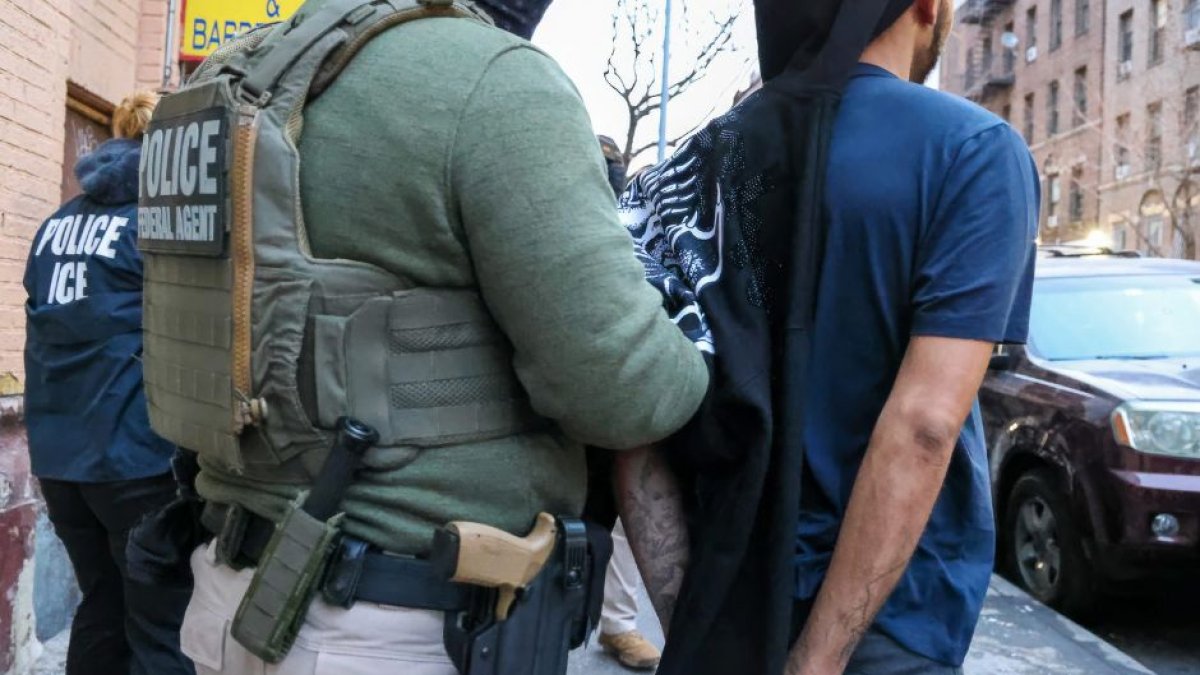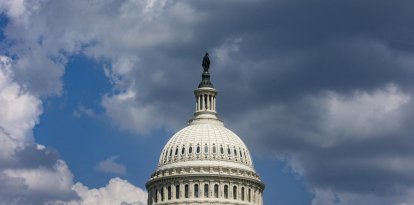Appeals court blocks Trump Administration deportation flights under the Alien Enemies Act
In a 2-1 ruling, Judges Karen Henderson, Patricia Millett and Justin Walker, refused to stay temporary restraining orders issued by federal district judge James Boasberg.

Member of Aragua Train arrested.
A federal appeals court for the D.C. Circuit on Wednesday upheld a temporary block on deportation flights pushed by the Trump administration, in a decision that puts in check the executive's authority to invoke the Alien Enemy Alien Act of 1798 as an immigration tool.
In a 2-1 ruling, the three-judge panel of Karen Henderson, Patricia Millett, and Justin Walker refused to stay the temporary restraining orders issued by federal District Judge James Boasberg, who last week halted deportations of Venezuelan nationals, including alleged members of the Tren de Aragua (TDA) gang, and ordered the return of any planes that had already taken off.
The case, which could escalate to the Supreme Court. At stake was the Trump Administration's ability to use the Alien Enemies Act.
A split decision at the appeals court
During Monday's oral arguments, which the court agreed to hear on an expedited basis, Obama appointee Judge Patricia Millett dominated the exchange and expressed skepticism about the administration's implementation of the Alien Enemies Act.
In a tense debate with Drew Ensign, a Justice Department lawyer, Millett questioned whether the express deportations left enough time for those affected to apply for habeas corpus, a key remedy for challenging detentions.
If the Trump administration's argument is that the restraining order handed down by a lower court judge last week is "an intrusion on the president's war powers and [that] the courts are paralyzed to do anything, then that's a misreading of precedent," Millett said.
She added, "And it's a misreading of the text of the Alien Enemies Act. The president has to comply with the Constitution and laws like everybody else."
In a concurring opinion, Judge Karen Henderson, a Bush appointee, supported the decision by noting, "At this early stage, the government has yet to show a likelihood of success on the merits. The equities favor the plaintiffs. And the district court entered the TROs for a quintessentially valid purpose: to protect its remedial authority long enough to consider the parties’ arguments.”
Thus, Henderson concluded that "Accordingly, and for the foregoing reasons, the request to stay the district court’s TROs should be denied." For his part, Judge Justin Walker, although no details of his position are cited in the ruling, was part of the panel that tipped the scales in favor of the plaintiffs.
Origin of the conflict: the Boasberg order
The conflict began last weekend, when Judge James Boasberg issued a temporary restraining order prohibiting the Trump Administration from using the Alien Enemies Act to deport Venezuelan nationals, arguing the need to further evaluate the merits of the case.
Boasberg also ordered the return of any aircraft carrying migrants deported under this law.

Politics
Judge orders return of two planes carrying Venezuelan immigrants to U.S. after Trump invokes Alien Enemies Act
Emmanuel Alejandro Rondón
However, hours later, planes carrying hundreds of migrants, including Venezuelans, landed in El Salvador, sparking accusations of contempt and an emergency appeal by the administration.
In its initial appeal, theJustice Department described Boasberg's order as a "massive, unauthorized imposition on the Executive’s authority to remove dangerous aliens who pose threats to the American people".
Tensions between the Executive and the Judiciary
The Trump Administration has maintained a tough stance. Attorney General Pam Bondi, in an interview on Fox News's Sunday Morning Futures, sharply criticized lower court judges, calling Boasberg "this is an out-of-control judge, a federal judge, trying to control our entire foreign policy, and he cannot do it." Bondi vowed to take the case to the Supreme Court if necessary, a possibility that the appeals court ruling could hasten.
Meanwhile, Boasberg has stepped up his investigation into whether the administration deliberately violated his order. Last week, he demanded more information from the government about the deportation flights, a request the DOJ refused.
In a brief to the appeals court, Administration lawyers argued that Boasberg was "continuing to attempt to pry sensitive information from the government" with "intrusive inquiries" that "could hamper negotiations in the future."
In response, Boasberg questioned the government's credibility at a separate hearing: "I often tell my clerks before they go out to practice law that the most valuable thing they have is their reputation and their credibility. I would ask that your team retain that lesson."
In addition, he warned that he will investigate "I will get to the bottom of if they complied with my order and who violated the order, and what the consequences are".
A case with profound implications
The Trump Administration seeks to use the Alien Enemy Alien Act to expedite deportations, justifying it as a national security measure against alleged criminals like those in the Aragua Train.
However, the plaintiffs argue that this application violates constitutional rights and lacks a legal basis outside of a declared war context.
With the appeals court upholding the block, the next step could be a review by the Supreme Court, as anticipated by Bondi.



























